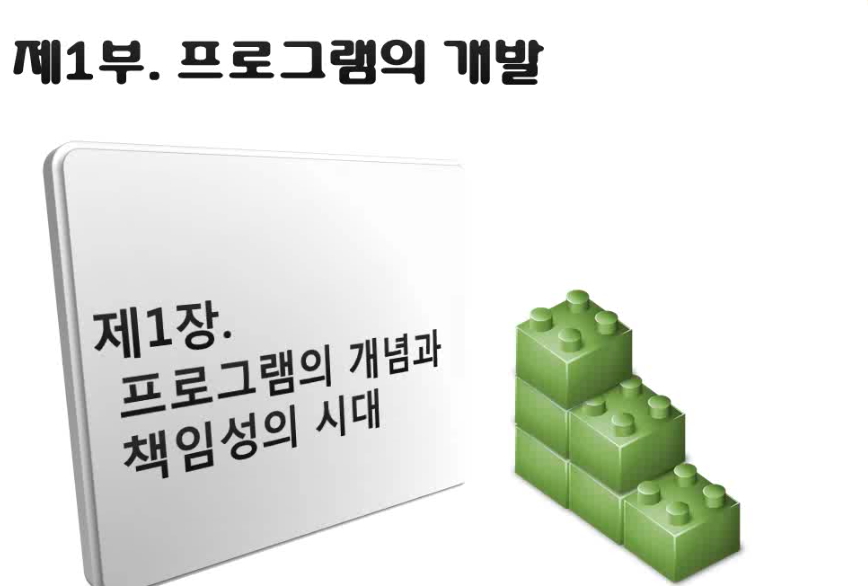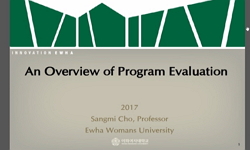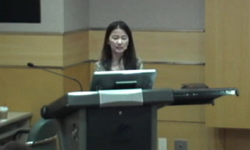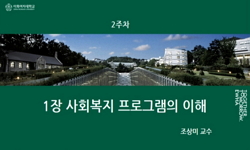In contemporary society, alongside the sexual liberalization, significant changes are occurring in South Korea's traditional perceptions of sexuality. The sexuality of the elderly is also playing a crucial role in terms of health and quality of life. ...
http://chineseinput.net/에서 pinyin(병음)방식으로 중국어를 변환할 수 있습니다.
변환된 중국어를 복사하여 사용하시면 됩니다.
- 中文 을 입력하시려면 zhongwen을 입력하시고 space를누르시면됩니다.
- 北京 을 입력하시려면 beijing을 입력하시고 space를 누르시면 됩니다.
https://www.riss.kr/link?id=T16941665
- 저자
-
발행사항
원주 : 상지대학교 교육대학원, 2023
-
학위논문사항
학위논문(석사) -- 상지대학교 교육대학원 , 평생교육 평생교육전공 , 2024. 2
-
발행연도
2023
-
작성언어
한국어
- 주제어
-
발행국(도시)
강원특별자치도
-
형태사항
89 ; 26 cm
-
일반주기명
지도교수: 이재은
-
UCI식별코드
I804:42007-200000726116
- 소장기관
-
0
상세조회 -
0
다운로드
부가정보
다국어 초록 (Multilingual Abstract)
In contemporary society, alongside the sexual liberalization, significant changes are occurring in South Korea's traditional perceptions of sexuality. The sexuality of the elderly is also playing a crucial role in terms of health and quality of life. As South Korea enters the era of superaging, various social issues concerning the elderly are being faced, and one of them is the issue of elderly sexuality. Positively transforming the matter of elderly sexuality becomes a vital factor in enhancing the satisfaction of their lives. Therefore, there is a practical need for a sex education program aimed at raising awareness of sexuality in old age and promoting a healthy sex life. The elderly sex education program should be developed based on the changing societal environment, reflecting the sex education needs of the elderly and providing a practical educational program in which elderly learners can participate. Accordingly, this study aims to investigate and analyze the sex education needs of the elderly and develop a sex education program that the elderly can perceive positively and embrace actively.
To develop the elderly sex education program, a literature review was conducted to collect foundational data related to lifelong education for the elderly, elderly sexuality, and programs for elderly sex education. Based on the collected data, a survey on the sex education needs of the elderly and focus group interviews were conducted to analyze their sex education needs. Using the survey results, a concrete program was formulated, and expert opinions were considered to modify and enhance the program, resulting in the final development of an elderly sex education program.
The survey results regarding the sex education needs of the elderly revealed significant differences based on gender, age, marital status, education level, health status, and economic status. It was observed that female elderly individuals expressed a higher need for sex education, and the need increased for those without spouses, those perceiving good health, and those with better economic conditions. Additionally, satisfaction with sexual life showed significant differences based on gender, marital status, economic status, and frequency of sexual activity. Male elderly individuals reported lower satisfaction with their sexual lives compared to females, and those without a spouse due to separation or death were dissatisfied with their sexual lives. Regarding the content of sex education, the highest demand was for education on 'methods for a happy and healthy sexual life.' In terms of sex education methods, the elderly preferred education that involved their direct participation and experience, with the majority expressing a desire for free education.
Through focus group interviews, specific demands regarding the content and method of sex education were identified. Adult learners expressed a desire for sex education that allows their direct participation and emphasized that education on methods for a happy and healthy sexual life should be structured to enable learners to explore on their own. The results from the focus group interviews aligned with the findings from the survey.
Based on these survey results, the program was designed and structured, and with the incorporation of expert opinions, the program underwent modifications and improvements.
The developed elderly sex education program consists of three main areas: 'Happy sexuality,' 'Healthy sexuality,' and 'Safe sexuality,' each further divided into seven subtopics. The final program is structured over seven sessions, and instructional guides for each session were developed for practical use in educational settings.
Despite the emphasized need for elderly sex education, the development of programs that reflect the characteristics and demands of elderly learners from a lifelong education perspective has been rare. The significance of this program lies in its reflection of the characteristics of elderly learners, acknowledgment of the demands of the elderly, and the creation of an elderly sex education program from a perspective that enables direct participation of the elderly in lifelong education.
This developed program can be utilized in elderly welfare institutions, cultural centers, and other lifelong education institutions, contributing to the happiness and healthy sexual lives of the elderly. It is expected that through such programs, the elderly can maintain a positive sexual perception and attitude, ultimately enhancing their overall life satisfaction.
Keywords: Elderly, Sex Education, Program Development, Needs Assessment
국문 초록 (Abstract)
현대 사회의 성개방화와 더불어 우리나라의 전통적인 성인식에도 많은 변화가 일어나고 있으며, 노인의 성은 건강과 삶의 질적인 측면에서 중요한 부분을 차지하고 있다. 우리나라는 초고...
현대 사회의 성개방화와 더불어 우리나라의 전통적인 성인식에도 많은 변화가 일어나고 있으며, 노인의 성은 건강과 삶의 질적인 측면에서 중요한 부분을 차지하고 있다. 우리나라는 초고령화 시대로 들어서면서 노인들의 다양한 사회문제를 직면하고 있는데 그중 하나가 노인의 성문제이다. 노인의 성에 대한 문제를 긍정적으로 변화시키는 것은 노인의 삶의 만족도를 향상시키는 중요한 요인이 된다. 따라서 노년기 성에 대한 인식을 높이고 건강한 성생활을 위한 성교육 프로그램이 필요한 실정이다. 노인의 성교육 프로그램은 변화하는 사회 환경을 바탕으로 노인들의 성교육 요구를 반영하고, 노인 학습자들이 참여할 수 있는 실질적인 교육 프로그램으로 개발되어야 한다. 이에 본 연구는 노인의 성교육 요구를 조사·분석하고, 노인 스스로가 성에 대해 긍정적으로 인식하고 적극적으로 받아들일 수 있는 성교육 프로그램을 개발하는데 목적이 있다.
노인 성교육 프로그램을 개발하기 위하여 문헌연구를 통해 노인 평생교육 및 노인의 성, 노인 성교육 프로그램에 관련한 기초자료를 수집하였고, 수집된 자료를 바탕으로 노인 성교육 요구에 대한 설문조사와 포커스 그룹 인터뷰를 실시하여 노인 성교육 요구를 분석하였다. 요구조사를 바탕으로 실질적인 프로그램을 구체화하고 전문가의 의견을 수렴하여 프로그램을 수정·보완하여 최종적으로 노인 성교육 프로그램을 개발하였다.
노인들의 성교육 요구에 대한 설문조사 결과, 노인들의 성교육 필요성에서 성별과 연령, 결혼 상태, 학력, 건강상태, 경제적 상태에 따라 모두 유의한 차이가 있다는 것을 확인하였다. 여성노인들의 성교육 필요성이 더 높은 것으로 나타났으며, 배우자가 없는 노인일수록, 건강하다고 느낄수록, 경제상태가 좋을수록 성교육 필요성이 높게 나타났다. 또한 성생활 만족도는 성별과 결혼상태, 경제적 상태, 성생활 빈도에 따라 유의한 차이를 나타내었다. 남성노인들의 성생활만족도가 여성노인에 비해 낮았으며, 이별, 사별로 인해 배우자가 없는 경우에 성생활에 만족하지 않는다는 결과가 나타났다. 성교육 내용에 있어서는 ‘행복하고 건강한 성생활을 위한 방법’에 대한 교육 요구가 가장 많음을 확인 할 수 있었다. 성교육 방법에 있어서는 노인들이 직접 참여하고 체험하는 교육을 선호하며, 대부분의 응답자들은 무료교육을 희망하였다.
포커스 그룹 인터뷰를 통해 성교육 내용과 성교육 방법에 대한 구체적인 요구를 파악하였다. 성인 학습자들은 자신들이 직접 참여할 수 있는 성교육이 이루어지기를 희망하였으며, 행복하고 건강한 성생활을 위한 방법은 학습자 스스로 찾아볼 수 있도록 교육이 구성되어야 한다는 의견을 주었다. 성교육 방법에 있어서는 설문조사 결과와 동일한 결과가 나타났다.
이러한 요구 조사 결과를 바탕으로 프로그램을 설계, 구성하였으며, 전문가 의견을 수렴하여 통한 프로그램을 수정·보완을 하였다.
노인 성교육 프로그램을 개발하였고 최종 프로그램의 구성은 다음과 같다. ‘행복한 성’, ‘건강한 성’, ‘안전한 성’의 3개의 영역으로 구성되어 있으며, 각 영역은 7개의 소주제로 구분되었다. 최종 노인 성교육 프로그램은 총 7회기로 구성되었으며 교육 현장에서 활용할 수 있는 차시별 교수 학습 지도안을 작성하였다.
노인 성교육에 대한 필요성이 강조되었음에도 불구하고, 평생교육학 관점에서 노인 학습자의 특성과 요구를 반영한 프로그램 개발은 드물게 수행되었다. 이 프로그램은 노인 학습자의 특성을 반영하고 노인들의 요구를 확인하고, 학습대상자들은 노인들이 직접적으로 참여할 수 있는 평생교육 관점에서 노인 성교육 프로그램을 만들었다는 데에 의의가 있다.
이 연구에서 개발된 프로그램을 노인 복지기관 및 문화센터 등 노인 평생교육 기관에서 활용하여, 노인들의 행복하고 건강한 성생활에 도움을 준다면, 노인들이 긍정적인 성인식과 성태도를 가지고 생활하면서 삶의 만족도를 향상시키는 데에도 기여할 수 있을 것이다.
주요어 : 노인, 성교육, 프로그램 개발, 요구분석
목차 (Table of Contents)
- 표목차 ⅰ
- 그림목차 ⅲ
- 국문초록 ⅳ
- I. 서 론 1
- 표목차 ⅰ
- 그림목차 ⅲ
- 국문초록 ⅳ
- I. 서 론 1
- 1. 연구의 필요성 1
- 2. 연구목적 및 연구문제 3
- 3. 용어의 정의 4
- II. 이론적 배경 6
- 1. 노인 평생교육 6
- 2. 노인의 성 10
- 3. 노인 성교육 17
- III. 연구방법 23
- 1. 프로그램 개발방법 23
- 2. 설문조사 26
- 3. 포커스 그룹 인터뷰 (FGI) 30
- 4. 전문가 의견 수렴 31
- IV. 노인 성교육 프로그램 개발 33
- 1. 노인 성교육 요구분석 33
- 2. 노인 성교육 프로그램 설계 53
- 3. 노인 성교육 프로그램 개발 59
- 4. 노인 성교육 프로그램 수정·보완 60
- 5. 노인 성교육 프로그램 최종 개발 63
- V. 결론 및 제언 73
- 1. 결론 73
- 2. 제언 75
- 참고 문헌 77
- Abstract 81
- 부록 84












